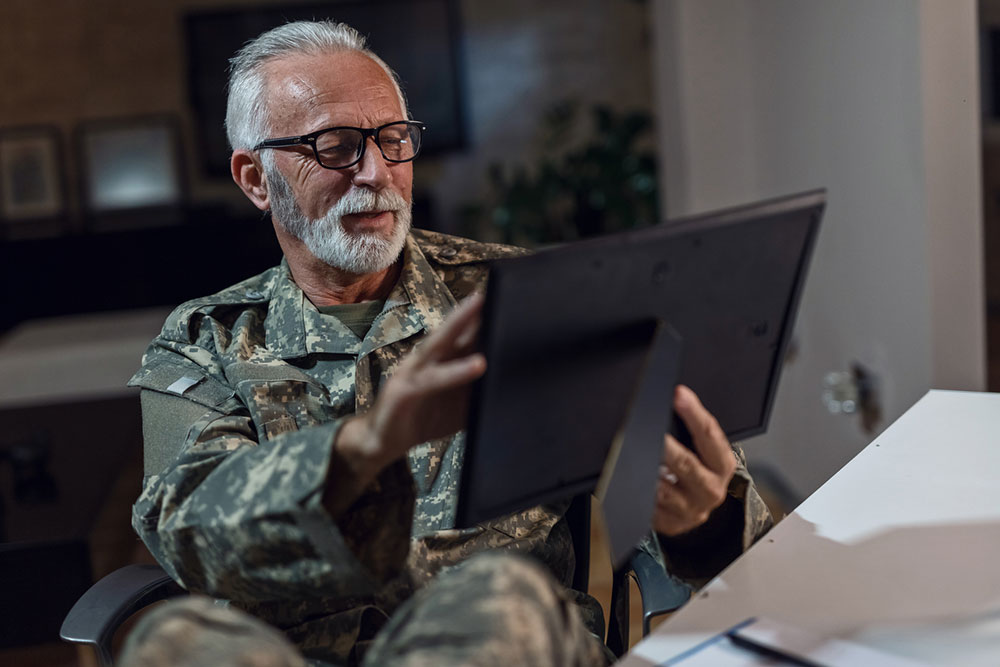The country’s veterans are heroes who have served with honor and courage. They are rightfully respected in the society for their dedication to the nation. However, many might not know that veterans have access to extensive support and benefits available exclusively to them. Beyond the familiar healthcare and educational benefits, many lesser-known programs are designed to ease their transition into civilian life, alleviate their financial burdens, and promote a fulfilling future. Here are 9 lesser-known veteran benefits:
Long-term care
Long-term care is one of the most important benefits available to veterans. The Department of Veterans Affairs (VA) offers many long-term care services to eligible veterans and, in some cases, their families, too. These services include adult day health care, home health care, respite care, hospice care, and nursing home care.
- The health services offered as a part of home health care include nursing care, physical therapy, and assistance with daily tasks.
- Respite care is another long-term care benefit available to veterans. It is designed to offer a short-term break to regular caregivers.
- In cases of terminal illness, veterans are offered hospice care to help them with pain management. It also offers them emotional support.
- VA also provides nursing home care to veterans with complex health care requirements.
Caregiver support
VA also has a Caregiver Support Program for the veterans in need. It includes access to a Caregiver Support Coordinator (CSC), who helps the caregivers by providing them with services that help them take care of the veteran better. These services include a monthly stipend, healthcare benefits, caregiver training, mental health services, and respite care. The caregivers are generally given access to these benefits via the Program of Comprehensive Assistance for Family Caregivers (PCAFC).
Educational benefits
Veterans also receive educational benefits with several training and learning programs from the VA. These non-college degree programs are designed to provide them with practical knowledge in different sectors. There are also programs that offer educational benefits to eligible veterans by helping them pay for school or job training, like the Post-9/11 GI Bill. This program covers a wide range of educational and training benefits, including tutorial assistance (to work toward a degree), flight training, entrepreneurship training, and much more. It also provides benefits for learning from home, such as correspondence training and distance learning programs.
Tax preparation
Tax preparation and filing can be a daunting task. However, veterans have access to certain programs and benefits that can make tax filing simpler for them, and that too, without any charges. One such program is the Volunteer Income Tax Assistance (VITA) program, designed by the IRS. It offers free tax assistance to individuals with an annual income of $75,000 or less. However, their services extend to veterans without any income eligibility criteria. Besides this, the IRS also offers the Veterans Business Outreach Center (VBOC) Program to veterans engaged in small business ventures. One of the topics covered in this program is how to navigate the tax filing process.
Mortgage assistance
The VA also provides programs to help veterans with home loans and mortgages. One such program is the VA-backed home loan. According to this program, the VA guarantees a part of the home loan, which the veteran would get from a private lender. The VA also offers veterans several other types of home loans and benefits, such as cash-out refinance loans, purchase loans, and Interest Rate Reduction Refinance Loan (IRRRL).
Business programs for entrepreneurship
For veterans who wish to start their own business ventures, there are several benefits that the VA provides. These benefits, which include access to several resources for veteran-owned small businesses, are provided by the VA via programs run by their Office of Small & Disadvantaged Business Utilization (OSDBU). To access these benefits, veterans must register their businesses with the Vets First Verification Program. Furthermore, the Small Business Administration (SBA) has established the Office of Veterans Business Development, which also offers services to help aspiring veteran entrepreneurs.
Life insurance
The VA also offers several life insurance benefits for veterans and their families. It provides different policies that offer coverage for veterans, service members, and their families, including their spouses and children. Some of these policies include the following:
- For service members, the VA offers the Servicemembers’ Group Life Insurance (SGLI), which is a cost-effective group term life insurance program.
- For veterans seeking lifelong coverage post-service, the VA offers the Veterans Group Life Insurance (VGLI). It is particularly advantageous for veterans facing the challenges of obtaining insurance from commercial providers due to underlying medical conditions.
- The VA offers the Family Servicemembers’ Group Life Insurance (FSGLI) for the service members’ families. It provides comprehensive insurance protection for their family members.
Unclaimed funds
Frequent relocations during military service enhance the likelihood of unclaimed funds existing in multiple states under veterans’ names. The National Association of Unclaimed Property Administrators (NAUPA) is responsible for ensuring that these unclaimed funds are returned to the respective owners. Besides this, every state has a dedicated department handling unclaimed funds, where veterans can initiate searches through the NAUPA website or their state’s unclaimed property website. Along with that, veterans must also know about the VA’s Insurance Funds site. This is where all unclaimed payments from government life insurance policies of veterans go. Retrieving these funds may take away a lot of financial burden from veterans.
Death benefits
The VA also offers several death benefits to veterans to honor them even after they pass away. These benefits include managing funds for the funeral and burial process of veterans. Besides this, the VA also provides Dependency and Indemnity Compensation (DIC) to a veteran’s surviving spouse, children, and dependent parents if the veteran’s demise has resulted from a service-connected injury or disease.
By exploring these benefits and resources, veterans can build a brighter future and ensure their valuable service to the nation is met with support and recognition. These lesser-known benefits enable veterans to navigate the challenges of civilian life with confidence and security.

















